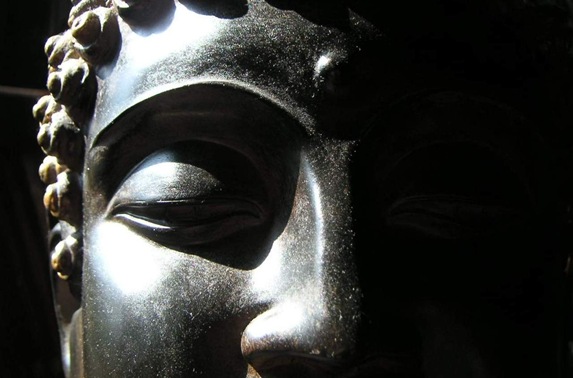Gilbert Keith Chesterton (1874-1936) was a prolific and widely celebrated English writer (a fellow of the Royal Society of Literature), known for his novels, poems, essays, plays, and biographies. As an apologist, he tirelessly mocked the popular heresies of his day, one of which was that Eastern religion was nicely compatible with or even superior to Christianity. He addressed this absurdity in Orthodoxy1 from whose chapter eight, “The Romance of Orthodoxy,” this passage is taken.
Chesterton’s critical response draws a sharp distinction between the two religious perspectives. Beginning with a note on religious art, he explains how, unlike Buddhism, true Christianity is an active, reforming faith. Its saints are straining to put the world right, under the reign of a transcendent God. His words are timely for pastors who labor in a culture infatuated with New Age thinking, Zen handbooks, Transcendental Meditation, and other forms of Eastern thought.
No two ideals could be more opposite than a Christian saint in a Gothic cathedral and a Buddhist saint in a Chinese temple. The opposition exists at every point; but perhaps the shortest statement of it is that the Buddhist saint always has his eyes shut, while the Christian saint always has them very wide open. The Buddhist saint has a sleek and harmonious body, but his eyes are heavy and sealed with sleep. The mediaeval saint’s body is wasted to its crazy bones, but his eyes are frightfully alive . . . The Buddhist is looking with a peculiar intentness inwards. The Christian is staring with a frantic intentness outwards . . .2
Certainly the most sagacious creeds may suggest that we should pursue God into deeper and deeper rings of the labyrinth of our own ego. But only we of Christendom have said that we should hunt God like an eagle upon the mountains: and we have killed all monsters in the chase.
[W]e find that in so far as we value democracy and the self-renewing energies of the west, we are much more likely to find them in the old theology than the new. If we want reform, we must adhere to orthodoxy . . . By insisting specially on the immanence of God we get introspection, self-isolation, quietism, social indifference—Tibet. By insisting specially on the transcendence of God we get wonder, curiosity, moral and political adventure, righteous indignation—Christendom. Insisting that God is inside man, man is always inside himself. By insisting that God transcends man, man has transcended himself.3
![]()
Footnotes:
![]()
1The entire work can be found on the web at the Christian Classic Ethereal Library, http://www.ccel.org/c/chesterton/orthodoxy.
2Gilbert K. Chesterton, Orthodoxy (New York: Image Books, 1990), 130-131.
3 Ibid., 134.





